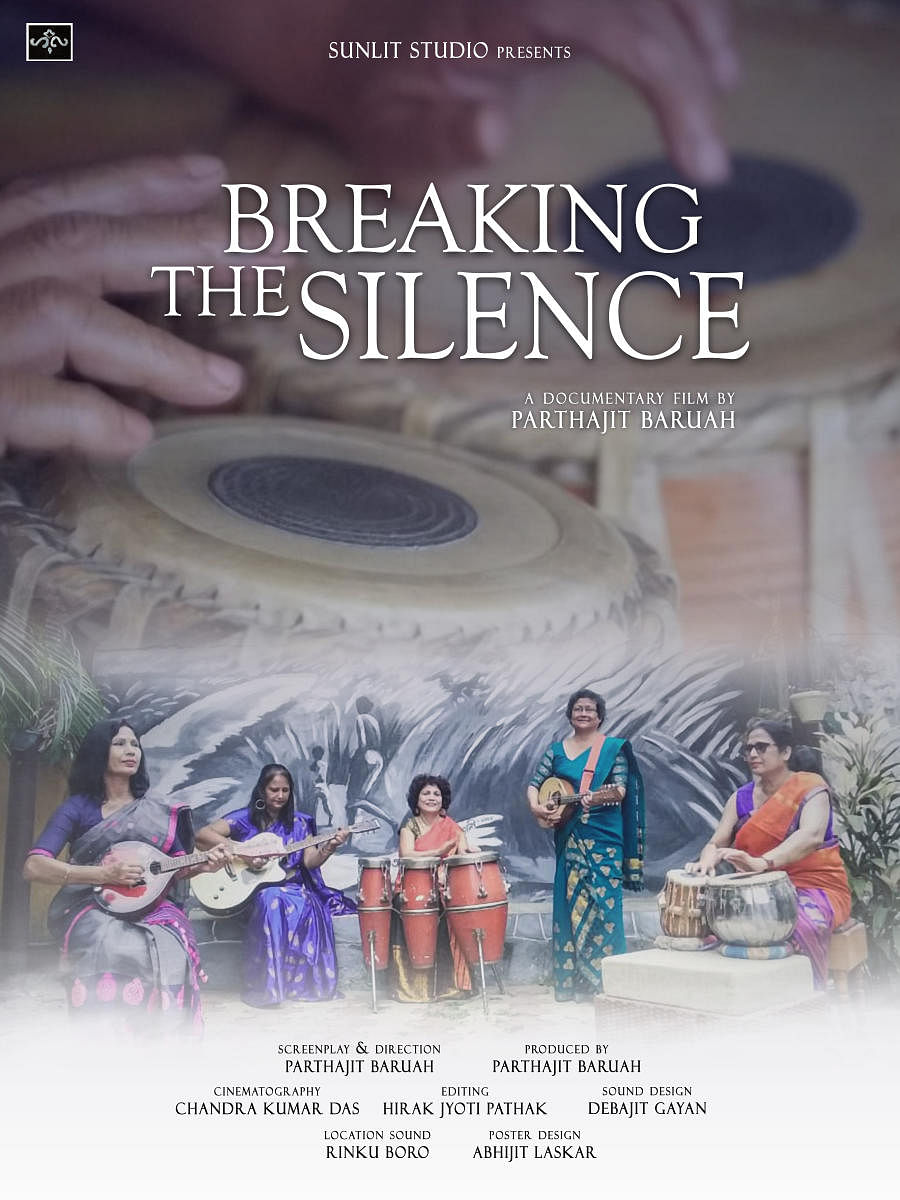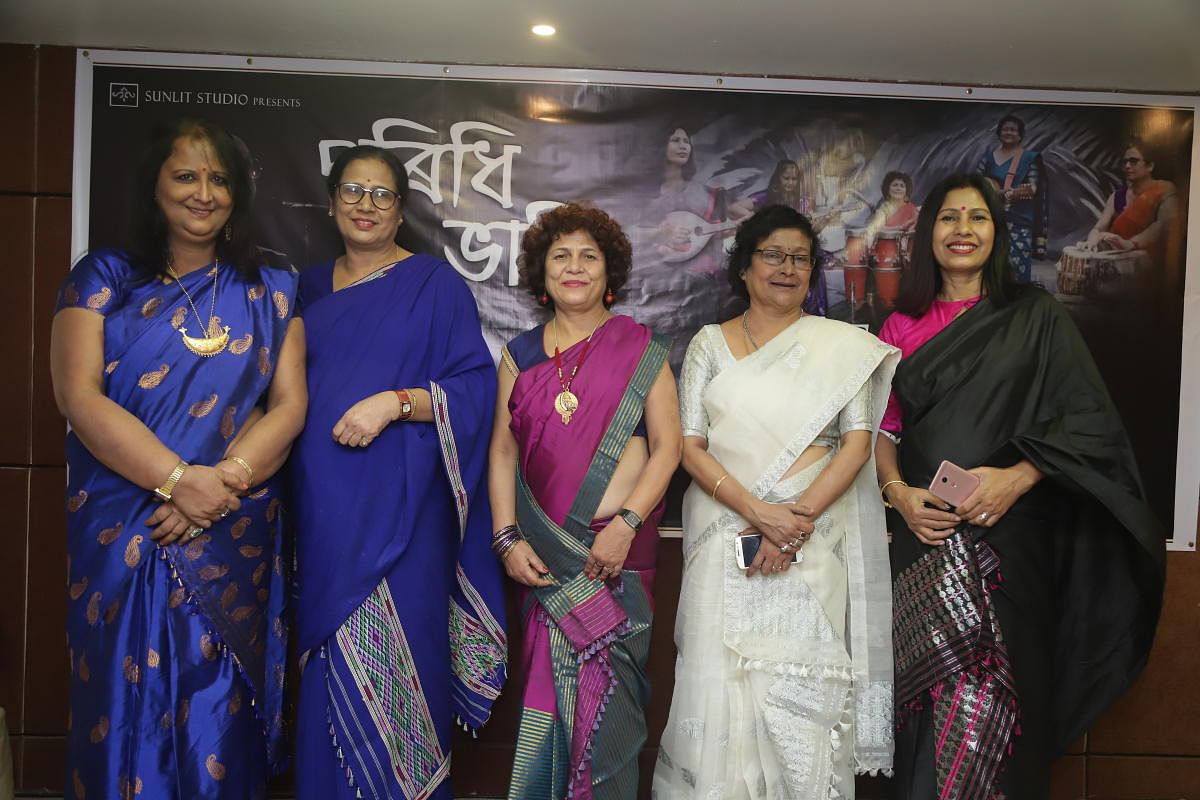

Today, all–women bands are not a rarity even in India. But way back in 1979 five girls of Nagaon, a small town in central Assam, dared to band together to form an all-women band Sur Samalay and thereby broke many social taboos.
Author and award-winning film journalist Parthajit Baruah’s documentary Breaking the Silence focuses on these women who are in their late 50s now but continue to make music.
The five gutsy women are: Anjali Mahanta, Nazma Ahmed, Sewali Lekharu, Kabita Nath and Arati Mahanta.
The film brings up a slice of the cultural history of Assam too. According to Baruah, “It was daring for a women’s band to perform in the orthodox atmosphere at that time. The five women belonging to different castes and religions redefined women’s position in society through their musical instruments.”
Anjali Mahanta, who plays the mandolin, is married with a family and is a working woman. Nazma Ahmed, who plays the Triple Congo, works at the Assam Secretariat. Kabita Nath, who plays the guitar, has remained single. No marriage proposal worked because of her pre-condition, as she impishly says, “I declared I will not give up my guitar and will carry it with me as a bride.”
Arati Mahanta, who plays the tabla, is a homemaker. Sewali Lekharu, who also plays the guitar, is a social worker. Nazma Ahmed had to face threats from the maulvi for going against the diktat of social norms of the Muslim society. But she fought against religious taboos to pursue her passion.
These women also articulated a voice against a patriarchal mindset. Anjali Mahanta says that she found lyrics in many Assamese songs of that time derogatory against women.
Explaining how he discovered this unique five-member women’s musical band, Baruah says, “In December 2018, Sur Samalay organised a musical show in Nagaon. They invited me for their musical show as the chief guest. The function started with their programme, and the most significant part was the way they performed. They were draped in Assamese Mekhela Sador and introduced themselves one by one to the huge gathering as if they were still in their teens. The passion for music and their spirit even in their late 50s amazed me.”
In the documentary, the camera captures Nazma Ahmed offering her daily namaz following which she takes off the headscarf and comes to the balcony of her home to tune the triple Congo she plays.
She explains how within the Muslim community, women are always subjected to many oppressive practices even today.
“Friends, neighbours and relatives would come and tell my elder brother and mother not to allow me to play but they never stopped me. I performed for the first time at Babuji Hall in Nagaon in 1979 and the first song I played was Dum Maro Dum. At that time, I used to play the bongo,” Nazma adds,
Her friend Anjali Mahanta told her to form a musical band and they were on. Anjali says that she did not like the earlier songs which, she felt, were not very respectful of women and wanted to raise her voice in protest by creating an all-women band and initiating a movement. Baruah adds, “Those days it was not easy to break prevailing social taboos and prejudices by girls in their teens. They did just that through their music and paved the way for the later generation in Assam who came up with bands like Band of Hurricane Gals. Kabita Nath, the gutsiest among them all, plays on the guitar. Laughing into the camera while standing on the railway tracks under an arched bridge constructed by the British in Nagaon, she quotes John Lennon who said, ‘Girls don’t play the guitar’ but “I am determined to play the guitar which is my first and last love, till I die.” Interestingly, as the camera moves to her residence, you discover posters of the Beatles and Elvis Presley pasted on her wall as she plays on her guitar. She decided to remain single because she claims that she is already married to the guitar.
Trans World Features